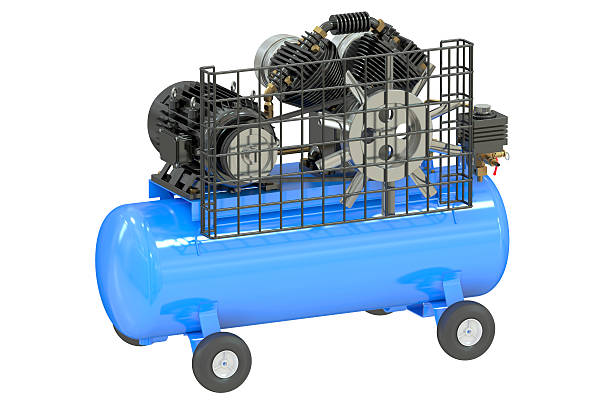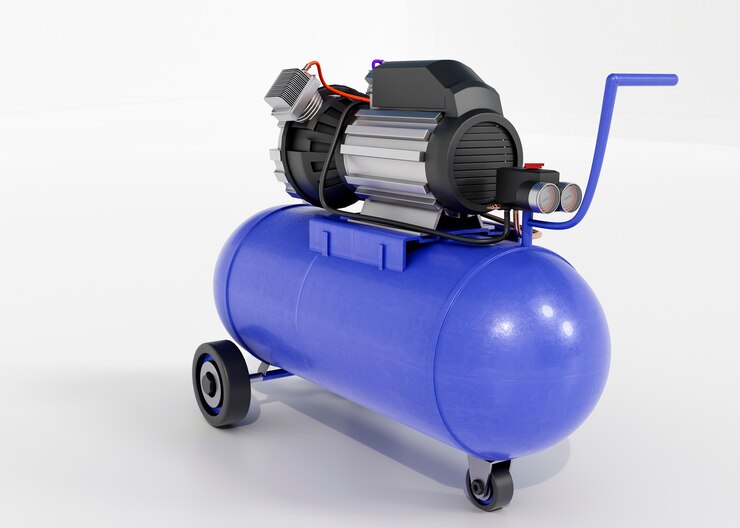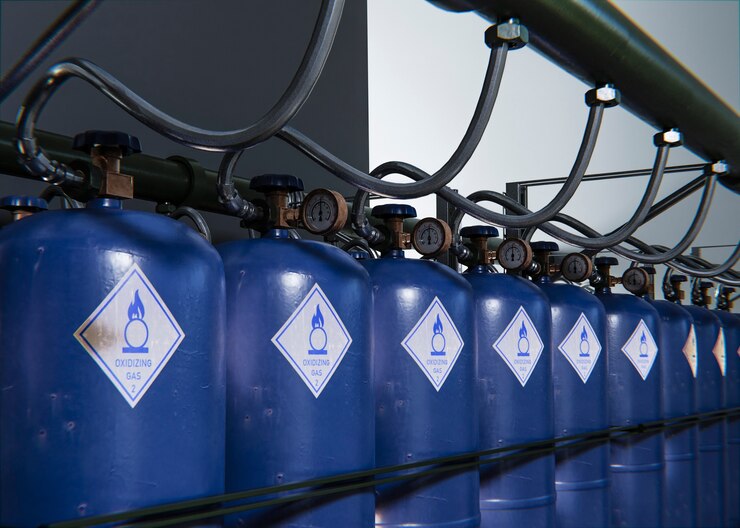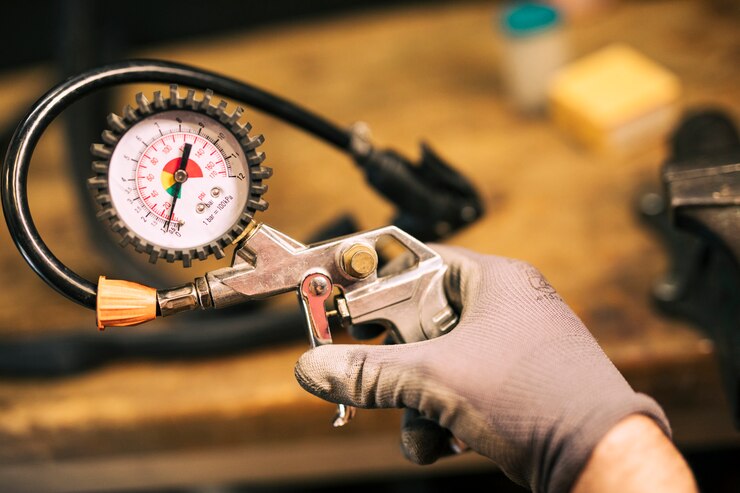The Essential Guide: Piston Air Compressor Oil for Efficiency & Longevity
The Lifeblood of Your Machine: A Comprehensive Guide to Piston Air Compressor Oil
Using the proper oil is essential to maintaining the smooth and effective operation of your Piston Air Compressor Oil. Lubricated piston air compressors, in contrast to their oil-free rivals, require premium oil to operate at their best. Your machine’s lifeblood, this oil lowers friction, cools down parts, and guards against wear and tear. However, selecting the ideal lubricant might be difficult due to the variety of soil types and aspects to take into account.
This thorough book delves deeply into the subject of piston air compressor, giving you the knowledge and ability to choose the best option for your particular requirements. We’ll look at various oil kinds, selection standards, upkeep procedures, and disposal techniques.
Exposing the Oil Landscape: Different Types of Oil for Piston Air Compressors
To choose the best oil for your compressor, you must first understand the range of possibilities available. The two primary categories are broken out as follows:
- Mineral Oil:
Made from petroleum, mineral oil is the conventional and most widely used variety. It is generally affordable and appropriate for a wide range of uses. At higher temperatures, though, it can degrade more quickly and need to be changed more frequently.
- Synthetic Oil:
Designed to function better, synthetic oil has several benefits. Its superior resistance to oxidation, shearing, and high temperatures results in longer oil life and increased compressor efficiency. On the other hand, synthetic oil is usually more expensive.
Extra Things to Think About:
When choosing, take into account the following aspects in addition to the type of base oil:
- Viscosity Grade:
This figure represents the thickness and flow properties of the oil. For the recommended viscosity grade based on operation temperature and environment, refer to the manual that came with your compressor.
- Food-Grade Oil:
Select an oil that is approved as safe for accidental contact if your application includes the processing of food and beverages or the manufacturing of pharmaceuticals.
- High-Performance Oil:
High-performance synthetic oil designed for heavy-duty use is a good option for demanding applications needing prolonged operation or exposure to harsh temperatures.
Selecting the Perfect Match: Choosing the Right Oil for Your Piston Air Compressor
The oil you use will have a big impact on how smoothly and efficiently your piston air compressor operates. Lubricated compressors, as opposed to oil-free ones, rely on the proper lubricant to reduce friction, cool parts, and stop wear. However, choosing the ideal combination might be difficult given the variety of oil types available. Fear not—this book will provide you with the tools needed to make a wise choice!
- The Manufacturer’s Advice: Your Guide to Success
The manufacturer’s advice should always come first when making decisions. The oil type and viscosity grade that is optimum for compatibility and optimal performance are specified in your compressor manual. This guarantees that your compressor runs within its intended specifications.
- Knowing the Operating Environment: Temperature Is Important
An important factor in choosing an oil is temperature. Choose synthetic oil if your compressor runs in hot conditions. Because of its exceptional resistance to thermal breakdown, synthetic oil maintains effective lubrication even at elevated temperatures. On the other hand, mineral oil may be adequate in colder operating environments.
- Application Requirements: Take Your Needs into Account
There are unique oil requirements for certain uses. For example, manufacturing pharmaceuticals or processing food and beverages requires food-grade oil that is approved as safe for accidental contact. If any of these apply to your application, look into food-grade solutions.
- Oil Change Frequency: Reconciling Cost and Performance
If you compare mineral oil to synthetic oil, the former usually requires more frequent changes. While choosing a choice, keep these upkeep expenses in mind. Synthetic oil is more expensive initially, but in the long run, especially for applications that require regular operation, its extended lifespan can result in cost savings.
- Professional Advice: Seek Advice from an Expert
Consult your oil supplier or a skilled compressor mechanic without holding back. Based on your particular compressor model, operating environment, and application needs, they have the knowledge to suggest the best oil for you.
Remember: Recall that selecting the appropriate oil is an investment in your piston air compressor’s performance and lifespan. By taking these things into account and getting professional assistance, when necessary, you can make sure your compressor keeps working at its best for many years to come.
Ensuring Peak Performance: Maintaining Your Piston Air Compressor Oil
Your Piston Air Compressor Oil depends on appropriate oil maintenance to operate at peak efficiency, just like a car does. The following are some crucial procedures to maintain the smooth and effective operation of your compressor:
- Oil Changes: Your Compressor’s Lifeblood
It is crucial to follow the recommended oil change intervals provided by the manufacturer. With time, oil deteriorates, diminishing its ability to lubricate and raising friction. Frequent oil changes, which are frequently expressed in terms of operating hours, clear these impurities, guaranteeing smooth functioning and averting premature wear and tear on internal parts.
- Oil Level Monitoring: A Simple and Quick Inspection
It’s vital to keep the oil at the right level. Check the oil level frequently with the dipstick that comes with your compressor. To find out the suggested fill level, go to the manufacturer’s handbook. Overfilling can result in foaming and decreased lubrication efficacy while operating with little oil can cause overheating and component failure.
- Maintaining Air Filters: Preventing Pollutants
The oil in your compressor is greatly protected by your air filter. The oil’s deterioration is accelerated when dirt and debris can enter through a clogged filter. To guarantee that clean air reaches the compressor and maintains your oil free of contaminants, replace your air filters according to the manufacturer’s instructions.
- Visual Examination: A View into the Health of Compressors
Take a minute to look for any irregularities in the used oil during oil changes. Debris, discolouration, or an abundance of metal shavings are indicators of possible issues such as internal wear or contamination. Send any alarming results to a licensed compressor technician for additional assessment and potential fixes.
- Environmental Responsibilities: Conscientious Disposal
You shouldn’t pour used oil down the sink! Numerous recycling facilities and oil suppliers provide choices for the responsible disposal of spent oil. For information on acceptable disposal methods, check your local legislation. Maintaining the efficiency of your compressor while ensuring that you’re not adding to pollution is known as doing your part for the environment.
By adhering to these basic yet essential oil maintenance procedures, you can maximize your Piston Air Compressor Oil lifespan, save expensive future repairs, and improve its performance.

The Power of Lubrication: Unveiling the Benefits of Piston Air Compressor Oil
In contrast to their equivalents without oil, piston air compressors depend on oil as a crucial component for seamless functioning. This lubricant performs a variety of functions that maintain your compressor operating at its best. Let us examine the main benefits that piston air compressor oil provides.
- Decreased Friction and Wear:
Within the compressor, oil serves as a barrier to protect the moving parts. Reducing friction keeps vital parts like cylinders, bearings, and pistons from undergoing undue wear and tear. Reduced wear also means that your compressor will last longer and require fewer costly repairs.
- Enhanced Power and Efficiency:
Oil makes your compressor run more smoothly by lowering friction. This results in increased total power output and decreased energy usage. Without straining or using more effort than is necessary, your compressor can provide the required airflow and maintain a constant pressure.
- Better Heat Management:
Heat is produced during the compression process. Oil serves as a coolant, collecting heat from internal parts and sending it to the cooling system of the compressor. By controlling the heat, overheating is avoided, which can harm components and reduce their functionality.
- Protection Against Corrosion and Rust:
The inside parts of your compressor may be in danger from moisture. Metal components are shielded from rust and corrosion by an oily covering. By doing this, you may prolong the life of your compressor and guard against expensive interior damage brought on by moisture accumulation.
- Sealing and Preventing Leaks:
Oil can fill in the tiny spaces between parts as a sealant. This contributes to the compressor’s optimal pressure delivery and effective operation by preventing compressed air leaks inside the device.
Beyond the Fundamentals: Depending on the type of oil selected, piston air compressor oil has extra benefits. For instance, compared to mineral oil, synthetic oil performs better at high temperatures and has a longer lifespan.
Conclusion:
With the LIEYAO compressor, you can maximize the performance of your piston air compressor. Our oil is designed to provide outstanding performance by reducing wear and friction, increasing efficiency, and preventing rust and corrosion. Select LIYAO compressor for a dependable, long-lasting solution that maintains your compressor operating at peak efficiency. Explore the selection on our website to discover the ideal fit for your requirements.



